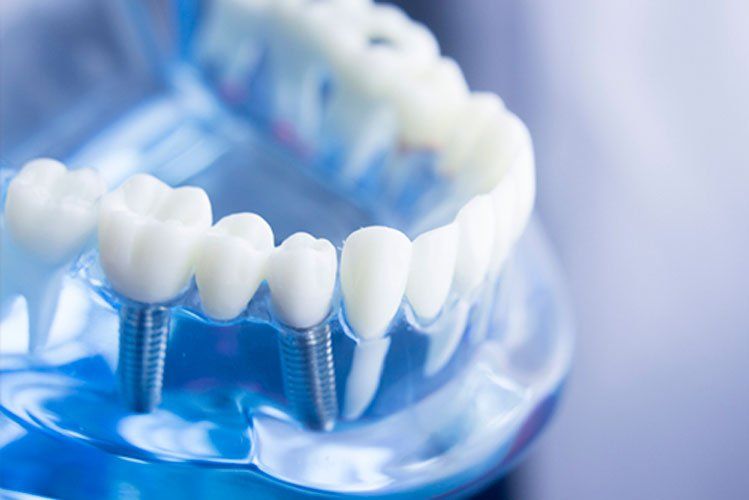Dental Implants in New York City, NY
When you are missing adult teeth, your oral health is at risk. Specifically, you risk losing bone mass in your jaw, which can impact the health of your remaining teeth, your appearance, and the strength of your bite.
Your teeth have roots that extend deep into your gums and jawbones. When you chew, it puts pressure on your teeth. That pressure is absorbed down through the roots of your teeth where it stimulates your jawbones. This simple action helps to keep your jawbones strong and healthy.
When there is no tooth there to transfer the pressure, your jawbone does not get the stimulation it needs. This can cause the bone to weaken and actually lose mass. If left untreated, it can also lead to further tooth loss.
Dental implants are the best solution for missing adult teeth because they mimic the function of your tooth’s root. This prevents bone loss and keeps your jaws healthy and strong. At Riverside Dental Care , we will help you get high-quality dental implants to keep your smile looking and feeling great for years to come.
Call us at (646) 414-6238 to schedule your appointment today!
Caring for Your Implants
One of the best things about dental implants is that they are remarkably easy to care for. Previously, most patients received a bridge as a replacement for a missing tooth. But to maintain a bridge, a patient must floss under it every day to remove food particles. Because many patients aren’t faithful about this additional care needed for a bridge, many bridges fail after just a decade or so. But a dental implant only needs to be brushed and flossed just like your natural teeth to last for many years.
It’s very important to maintain a regular schedule of dental visits to care for your implant—and, of course, all your natural teeth. Tooth decay or gum infections could compromise the health of your mouth which could endanger your teeth or your implants. We take great pride in helping our patients not only with excellent preventative care, but with plenty of education so they know how to protect their smiles.
Dental Implants Are Excellent Solutions No Matter What Caused Tooth Loss
No matter why a patient has suffered tooth loss, dental implants help restore their smile. We have treated patients who lost teeth in a car accident or sporting mishap. Some of our patients were never comfortable with dentures and have found that dental implants were a better tooth replacement option for them. And, of course, when a tooth suffers decay or an infection that require it to be extracted, dental implants can make a patient’s smile whole again.
There is actually one more category of patient who benefits from dental implants. And that is the patient who is missing teeth simply because the teeth never developed in their body! There are more people like this than you might expect.






